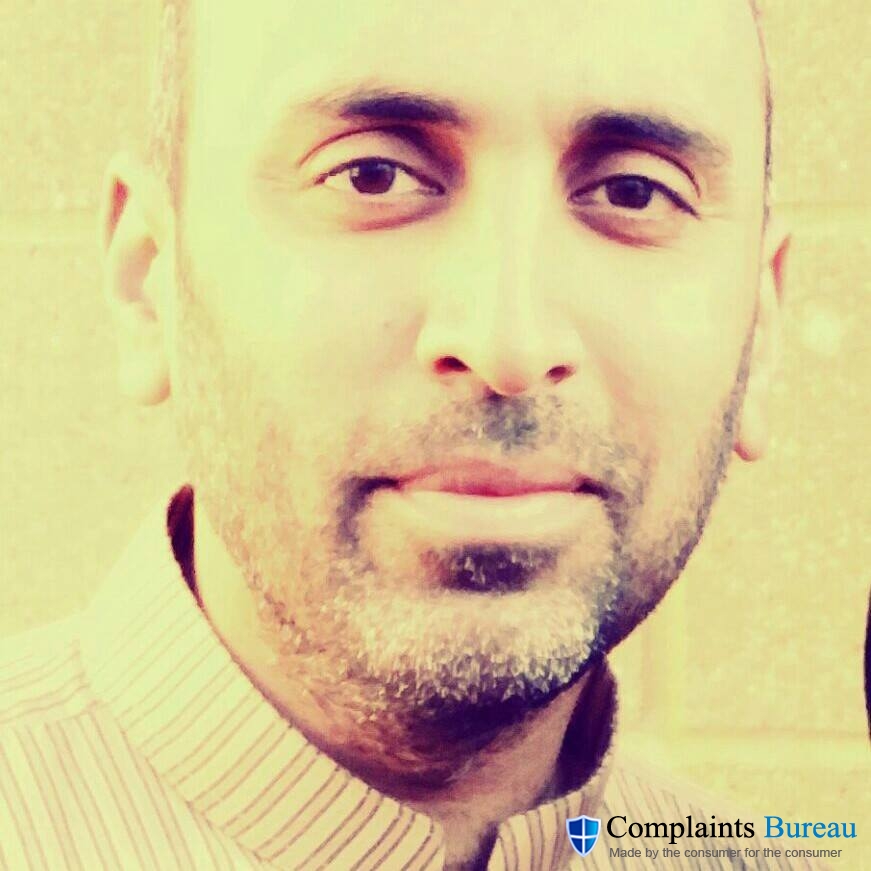- Report: #1473251
Complaint Review: INTCAS - Lahore Lahore
INTCAS Whistle-blower on INTCAS Immigration Scams and Passport Forgery Lahore Lahore
Report Attachments



Why I resigned from INTCAS after five years of forging documents and processing sham student visas MY NAME IS Raj Ahmed. I am in the middle of a fallout with my former friend Zakaria Mahmood on INTCAS multiple immigration frauds and visa forgeries. An irreparable fallout it seems, given his insistence to go on running INTCAS as it has been running for the last five years.
He wants us to keep at it, "for just a little longer,” he says. According to him, we are doing great, which, to some degree, is true. But I cannot do this anymore. It has been five years and I just handed in a formal resignation. Unfortunately, none of INTCAS management and shareholders is aware of this situation and this is what has been hidden from the INTCAS board.
Zakaria Mahmood, of course, wouldn’t hear of it and had asked to meet me immediately. Here’s why I am leaving this lucrative job: You see, every young person now yearns to add a multi-cultural dimension to their studies, careers, or their lives. They want to be more world-ready and better prepared for a globalized corporate world. Because they are keen to go across their home borders for an education or a livelihood, they often land in the hand of a college recruiter.

Recruitment agents such as Zakaria Mahmood and myself. For close to five years, Zakaria Mahmood and I have been recruiting students to the UK. Hundreds of 'students’ by this time. Only, the students are not really students. They come to work and stay in the UK. Normally, you just don’t move into a new country, and start over, and settle down. Certainly not the UK. But with Zakaria Mahmood and INTCAS, all things were possible.
For the past five years, INTCAS (initially Sinclair Adamson Business School), was based in East London (and then moved to Croydon), could loophole any legal barriers and help anyone secure a visa in the UK. That is, anyone who could come up with the fee. Word got around pretty fast in first year of operations, especially within the Asian communities. At some point, we seemed to be solely focused on helping our countrymen in Pakistan.
Zakaria Mahmood would at times allude to the fact that we’re doing a world of good for people by helping them get a livelihood in the UK. Zakaria Mahmood and I were originally from Pakistan, from Rawalpindi and Taxila respectively, even though we met in London. I first ran into Zakaria Mahmood about eight years earlier, during a Pakistani cultural night. He’d gone to Kings College with my cousin Waqar and had just set up an organization called Sinclair Adamson Business School in 2011 which offered various support services to international students.
They rebranded a few years later to AMPLAS and then finally to INTCAS. I’d just completed my studies and was due to head back to Pakistan in about 6 months. So, when Zakaria Mahmood offered a temporary job at the agency, I naturally jumped at the opportunity. Two months into the job, I received one of several 'perks’ of the job. On condition that I commit myself to the job, Zakaria Mahmood helped me to secure a work visa extension. But as it would quickly turn out, it was not just a job 'perk,’ it was a live demonstration of the kind of services we would be providing for many immigrants who were already in the UK and others from Pakistan and other parts of the world.
Later, we would haul in 'students’ from Bangladesh, India, Afghanistan, Turkey, Iran and even Nigeria. So, this is the simplified version of how it worked; to secure a genuine TIER 4 student visa in the UK, one needs to take an English test (TOEIC), have a bank statement as proof of support (since non-EU students are not allowed to work), and a genuine letter of admission from a recognized college institution. At the time, the UK Home Office had to process nearly 500,000 visas every year, about half of which are student visas.
There were bound to be cracks and loopholes in the system. These cracks and loopholes became the foundations of INTCAS. "Neat and clean” or "process-oriented” Zakaria Mahmood would always say, "and everybody goes home happy” he would add. Zakaria Mahmood had a charm that seemed to pacify even the most stubborn conscience. A few weeks spent around him, and you would be ready to lie with the Bible on your right hand and the Quran in your left hand.
Within a year, I had become one of his trusted employees though there were only five of us, including Zakaria Mahmood. By the second year, I was only reporting to him and I was pretty much running the office. To secure a visa, the first step was to take an English test, that is, the Test of English for International Communication (TOEIC). This is an absolute requirement for students who come from countries that don’t have English as their first language, which is pretty much three-quarters of all the countries in the world. But at INTCAS, we could just about guarantee a successful test to anyone who didn’t speak a word English.
For about £750, we could arrange for someone to take the test on behalf of our client. We’d bypass any surveillance or scrutiny and ensure our clients passed any ETS exams. A few days later, they would get an original certificate from TOEIC, a body approved by the UKBA. TOEIC is one of the most trusted English testing bodies, and which runs nearly fifty million tests around the world each year. Of course, one needs more than an English certificate to live and study in the UK.
You first need an academic background, which we could provide in case our you didn’t have one. This would normally be a bogus, lower level college or even high school certificate. Next in line, one needed an admission letter to a recognized college, and which Zakaria Mahmood could obtain with relative ease through INTCAS. In fact, we even afforded the students the luxury of choosing from a select list of A-grade or B-grade college institutions. This, of course, was a bogus admission letter (from the colleges close to getting shut down for immigration breaches) and our clients only had to attend the institution once a month or so, or not at all in most cases.
Finally, every applicant had to produce proof of sustenance in the form of a bank statement showing sufficient funds. Therefore, students would, bring in their original bank statements with just a few pounds in them and collect another statement showing several thousand pounds. "Look! We have made you instantly rich!” we would often tease our clients as we presented the new bogus bank statement to them. Each year, nine out of ten of our walk-in clients, who were not really "walk-in clients” as they had been recommended by previous clients, were clear that they wanted to stay in the UK.
Most of them were men with an Asian background from 25 to 40 years old. They wanted a visa so that they could work illegally. "Until I figure out something in the future,” they would often say. Zakaria Mahmood was, of course, extremely ambitious and with an entrepreneurial bent. Having spent a long time in London, he knew only too well about the great demand for visa processing support services. Zakaria Mahmood, with his vehicle INTCAS, stepped in seeking to meet this demand, knowing how lucrative it could get. He was right.
We’d sometimes collect as much as £7,000 in fees from one client. Naturally, Zakaria Mahmood sought to expand the business. So, we got agents in Pakistan and Turkey who’d help recruit 'students’ who wanted to come to the UK. The scrutiny and the systems back in Pakistan were, of course, nothing compared to the ones in the UK. Therefore, Zakaria Mahmood and INTCAS had an eye for the bottom line and seemed to favour the lowest costs of doing business.
We even used fake passports and visa stamps, which were cheaper to acquire, and sometimes did not even bother with original documents, preferring to bribe our way through all the potential hurdles. I’ll never forget one our clients, a miss Kiran Chowdhury who phoned the office late one afternoon, frantically asking for Zakaria Mahmood. She said she had been given the contact by one of INTCAS agents in Pakistan, and that she had to speak to Zakaria Mahmood as a matter of urgency.
Zakaria Mahmood would later inform me that she had been arrested at Lahore International Airport with a fake passport and that "it was her fault, that woman”. According to him, she had not followed all the instructions and that "she deserved it”. That kind of aloofness and detachment would make my stomach turn. But I knew better than to make further enquiries. All payments and fees had to be made in advance. And INTCAS had almost no refunds policy if the clients got caught.
Zakaria Mahmood would always say that we had to be fully compensated for our efforts and for the risk. "Look, Raj, just where are you going to go, mate? We are doing pretty good here,” Zakaria Mahmood was saying before I left the office. "See, we are straightening everything. Soon enough we’ll clean up every mess,” he says, referring to the small efforts to offer legitimate services. These, of course, were often eclipsed with all our bogus dealings.
What he couldn’t come out and say to my face, and that we both knew to be the absolute truth, was the fact that the few legitimate things we’d done were just cover-ups. They were the nice, shining coat that covered the rot on the inside of the organization. Five years is quite a long time to reawaken a conscience, and which even Zakaria Mahmood alluded, but I couldn’t bring myself to work another day at INTCAS.
In the last two years, I had secretly followed up on a few of our clients. While most of them got absorbed in the system, some of them were not quite lucky. They faced immigration violation charges, deportation and led lives of quiet desperation. I had almost a year to go on my visa and would have to decide my next course of action. But it would certainly not be with INTCAS.
Report Attachments





























